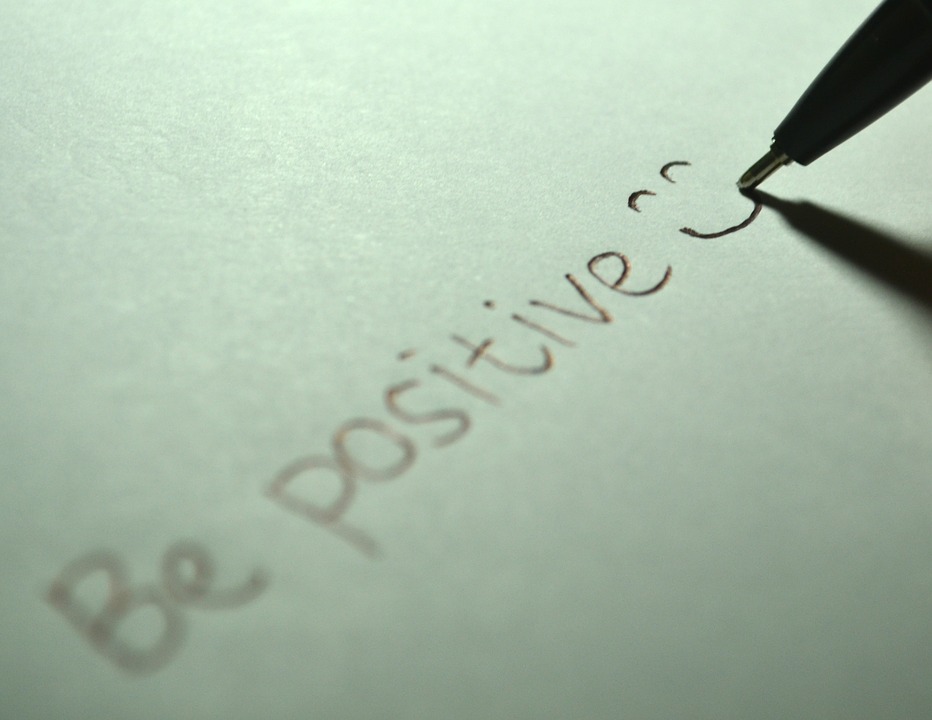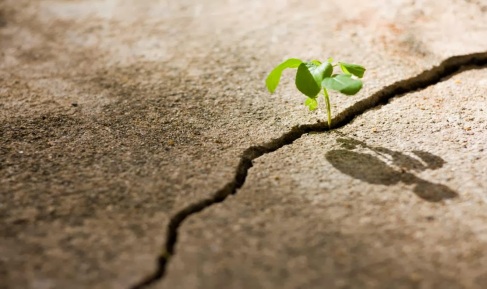
For many, if not most, Halloween is an often underwhelming holiday that is typically down-played due to its unseemly connections to all the things that Victorian housewives fear the most: sugary food, pranks, the interruptions of neighbors, spooky costumes, gore, and of course, fun.
By liturgy, I am using a particular definition of “liturgical” borrowed from James K.A. Smith’s Cultural Liturgy series. He defines and broadens liturgy as something both within and outside of sacred contexts. Smith suggests a liturgy is a sort of shorthand for any practice that forms our desires, which is essentially all of them. But instead of diluting the term, Smith provides a far more nuanced and rich understanding of liturgy, what it is, what it isn’t and what it does to us – how it shapes and forms our desires. For the individual, Smith sees liturgies as almost synonymous with the ubiquity and power of habits. For example, Smith’s work discusses the liturgy of football and the mall as cultural liturgies that form us and shapes us in ways both conscious yet, more so unconscious.
In this way, Halloween has ALWAYS been a cultural liturgy of significance that has shaped us to some degree. However, due to some more narrow conceptions of liturgy and culture, it has not been recognized as such and its potential impact upon us diminished – this is what we might hope to reanimate, so to speak.
One reason Halloween gets treated as a mere apparition, I venture to guess, is that there is still a strong Victorian poltergeist that haunts our culture: it prefers the comfortable, the known, the polite, the familiar, the safe, and the clean (there are many other connotations to the word and era, but for my purposes, I want to reflect upon these in particular). Anything that deviates from these is seen as lesser and suspect. The Victorian quest for perfection (and domination) functions as a restrictive and self-flagellating mental, emotional, spiritual, and existential practice. This poltergeist is the one we need to exorcise.
So I’d like to take a stab (pun grotesquely intended) at offering up a reimagination of Halloween. Let’s start with a different, hopeful, definition: Halloween is the liturgical practice of confronting and embracing death – so much so that we become death and all its costumed manifestations. It is the practice of breaking character with our selves, selves that are enslaved to the fear of death. The practice itself is an incantation, a summoning of a different self, an egoless self that needs not fear death, a redeemed and restored self that can embrace death as a friend rather than an enemy.
Halloween (which you can understand is traditionally downplayed in Victorian cultures) is about seeing, confronting, embracing, and even celebrating all the gifts of imperfection, all the unknowns, all the gritty, tactility of the everyday, being a physical body in a physical world. We are vulnerable to death and prone to decay. All of us. Everybody poops. So there is no use denying or ignoring these things. It would be better to see and acknowledge this vulnerability, the gore of this decay, this human frailty as fundamental realities of our selves as bodies that need not be shamed or ignored.
In order to see how our pervasive our death-denial is, and since there is such a rich history of the expressions of death within the cultural traditions of Halloween, it will be helpful to chart out some of the connections of and associations with death. There are both direct and indirect associations to be noted. First, as a whole, death itself is often subtlety signaled by the taboo, the rotten, the outcast, the abnormal, the malformed, the ugly, and the possessed. Some of these are direct association, close signals of death: possession (which the fear of the total loss of one’s agency, or willing self), the undead, bodily decay, monsters, Satan, personified death itself; some of these are indirect associations, sophisticatedly distant signals of death: the taboo, the socially abnormal, the banned, the outcast, the unknown, the imperfect, and even the Other.
Halloween, as a liturgical practice, allows us to look at all the imperfect things of this world (including our own weird alien selves: for we know we are always strangers to ourselves), all of these direct and indirect associations of death and embrace them with good humor and candy. As a practice, it is a reprieve from the endless machinations of the death-drive that so deeply shapes all of our fallen cultures and even our other liturgies. It is a reckoning with death, darkness, fear, and imperfection. And in that regard, modern Christianity could benefit significantly from Halloween as a practice guiding us away from our addictions to certainty, satisfaction, perfection, groupthink, and religious idolatry – all of which we have inherited, at least in part, from Victorian sensibilities, among many others. The practice of Halloween suggests that Christianity can be about an engagement of ALL of life – the good AND the bad – rather than a denial of the bad and a “clutching of the Victorian pearls” of the good we so desperately want for ourselves.
Halloween is about wearing the monster of ourselves loudly and proudly. It is about seeing and embracing that we are imperfect, sinful selves – monsters in our own right. And that the practice of the Christian is not about disavowing or running from or killing the monster – so many have tried to kill it their entire lives to no avail – rather, it is about learning to cope and live with the unkillable monsters in our proverbial basements (a narrative brought to beautiful effect in the horror movie, The Babadook). In lieu of our inability to fully exorcise our own demons, our life is to be about cultivating a healthy relationship to our own monsters – one that begins in acceptance rather than avoidance or fear. Indeed, it is acknowledging that acceptance is the prerequisite to change. That starting with denial or fear only feeds the beast and gives it more control over our lives. And the more we come to terms with the monster of ourselves, the less likely we are to project that monster onto others and hunt them down as a way of dealing with our own sin.
Halloween is but one opportunity for re-enchantment, for connecting our lived experience to the unknown, the other-wordly, and the untameable. It is already a season that is rich with liturgical traditions that can shape us in helpful ways if we have eyes to see and ears to hear. So this isn’t necessarily about adding on new cultural practices (though there may be room for more), rather, this is about reimagining, re-seeing how our current practices and traditions can be central to rethinking how we understand our selves and the world around us – if we pay attention.
To do this, I think it will be helpful to carve out a bit more of one of the main traditions of Halloween: Trick or Treating.

Trick or Treating provides a wonderfully dark opportunity to do two main things, both personally and collectively: confront death and encounter one another at the intimacy of each other’s door step.
For us bodies, behind the gore of ghouls, mummies, and frankensteins, werewolves, and zombies, lies the fear of our own death and decay. To viscerally confront these things by “becoming” them is to deal directly with their symbolized reality – to see death and decay in the very personal reality of our own mortality. This can function for us as a reminder of the fragility and brevity of our lives – which serves to awaken us to the gift of the life we have right now – or at least the gifts of candy our neighbors begrudgingly dole out in order to avoid trickery. This liturgy of Trick or Treating is a confrontation with death that conjures our skeletons to dance; to know that death is a part of our story is not to succumb to death as the final word but to embrace it as a word, a threshold to the next step in the journey.
In addition, the communal ritual of Trick or Treating provides an opportunity not just for creative disguises and confronting death, but also for getting out of our family boxes and meeting our neighbors. The night can be filled with spooking and scaring, with and catching up with our neighbors as we exchange care for one another as well as our shared places. Getting out of these family crypts – err, our homes – also provides another opportunity to see the beauty and needs of our places, to exact attention and care towards that which we depend upon. For a deeper exploration of the importance and communal benefit of Trick or Treating, check out Professor John Beckman’s piece on how “Halloween Can Save American Democracy.”
I’ve gone on far too long without mentioning Richard Beck. He is the only psychologist or theologian that I know of that engages directly with Halloween, its traditions and its symbols (he has a habit of engaging with all sorts of cultural artefacts over at his blog). Beck has numerous posts on Halloween and I feel it would be wrong of me to not mention how foundational his work has been to my understanding and enjoyment of Halloween. What’s more, two of his books in particular (Unclean and The Slavery to the Fear of Death) provide an even deeper foundation for my conviction that Halloween is an under explored cultural liturgy of significance, particularly for Christians.
For a Christianity that has sold its soul to the controllable, to the pure and clean, to the domination of all that is Other, to comfort and ease, Halloween stands as a counter-cultural liturgy that symbolizes acceptance of death. Halloween is about embracing the unclean, the imperfect, the outcasts and the unloved of the world as part of God’s beloved community. In fact, as far as holidays go, it is the closest thing we have to a celebration of the poor, the outcast, the stranger, the difficult to love, and the enemy! In other words, Halloween is a practice of love for the least of these. And love will have us see ourselves and each other as we really are – flesh, blood, skeletons and all.
The great thing about Halloween, for Christians, is that we need to do very little to it. It’s been curated for centuries and imbued with a rich array of symbolism, meaning, and tradition. It is not a question of building a new or different culture around the holiday, it is a question of perspective; Christians need to shift our perspective from one of abstraction and domination to one characterized by incarnation and vulnerability. And I think Halloween can be a significant liturgy that shapes and forms us toward those ends, IF we let it haunt us.
So haunt the night! Be spooky! Confront your generational demons! Exorcise your ego! Become a caricature of your worst self and see its falseness. Share some candy with your neighbors in all their abnormal and alien weirdness; maybe even learn to love them because of their difference. Stretch your costumed-creativity in becoming that monster within. Learn to love the uncontrollable, the unknown, the unscheduled, the mysterious, and the uncanny. Own your own inability to cope with a confusing and confounding world. Embrace the imperfections of your body as it carries you through the world. To be sure, all of this sounds difficult and scary, but that’s really the point of Halloween.
 The push for positivity is ubiquitous. Whether it is in a self-help book or the well-intentioned encouragement of a friend, positivity culture reigns – and sells. But, I have a sneaking suspicion that there is something devious going on amidst our relentless drive towards rational rainbows and lollipops. What’s going on here? My hunch is this: The religion of positivity is the opium of the people, and it is a part of our modern secular religion as well as the American Dream wherein there is a salvific flavor attached to our religious devotion to positivity.
The push for positivity is ubiquitous. Whether it is in a self-help book or the well-intentioned encouragement of a friend, positivity culture reigns – and sells. But, I have a sneaking suspicion that there is something devious going on amidst our relentless drive towards rational rainbows and lollipops. What’s going on here? My hunch is this: The religion of positivity is the opium of the people, and it is a part of our modern secular religion as well as the American Dream wherein there is a salvific flavor attached to our religious devotion to positivity. If I believe that there is in fact a cultural battle to be fought, attempting to wage war in the digital realm is akin to shooting fish in a barrel. It’s a waste of my time and energy, and worse, though I may be randomly effective in the task, I have no idea who I am hurting when I hit something. If I do not have the strength of character and courage to have a genuine face-to-face conversation with my fellow human, I am practicing my insecurities by only expressing myself online. And this is not where battles are to be fought.
If I believe that there is in fact a cultural battle to be fought, attempting to wage war in the digital realm is akin to shooting fish in a barrel. It’s a waste of my time and energy, and worse, though I may be randomly effective in the task, I have no idea who I am hurting when I hit something. If I do not have the strength of character and courage to have a genuine face-to-face conversation with my fellow human, I am practicing my insecurities by only expressing myself online. And this is not where battles are to be fought.

 Today is All Saints Day – the day after Halloween, which is one of my favorite holidays. So I make no claims to objectivity here, my bias is a defense of the holiday I love. But it is not a defense of the holiday per se, but rather a clarification on the point and purpose of dressing up for Halloween. For it seems we are becoming more and more disillusioned and confused about dressing up for Halloween and what this tradition is supposed to be about, or at least what it can be about.
Today is All Saints Day – the day after Halloween, which is one of my favorite holidays. So I make no claims to objectivity here, my bias is a defense of the holiday I love. But it is not a defense of the holiday per se, but rather a clarification on the point and purpose of dressing up for Halloween. For it seems we are becoming more and more disillusioned and confused about dressing up for Halloween and what this tradition is supposed to be about, or at least what it can be about. Yet, the pervasive nature of our
Yet, the pervasive nature of our 
